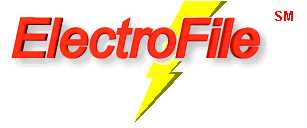

 | Income Tax Service |  |
Expanded First-Time Home Buyer Tax Credit Becomes Law
In the hopes of sustaining the real estate market's recent momentum, Uncle Sam has made more than two-thirds of current homeowners and nearly all first-time buyers eligible for thousands of dollars in tax perks when they purchae a house.
President Obama signed the Worker, Homeownership, and Business Assistance Act of 2009 into law Friday (11/06/2009), a day after the House of Representatives approved it by a 403 -to-12 vote. The legislation includes language that significantly expands the popular first-time home buyer tax credit that was enacted in February.
Here are five things you need to know about the development:
For first-time home buyers:
While the value of the credit remains as high as $8,000, the new law pushes back the deadline by which qualified first-time home buyers must make their transaction in order to claim it. (The legislation defines "first-time home buyers" as anyone who has not owned a principal residence in the three years prior to making the purchase.) Under the previous law that went into effect in February, buyers needed to close the transaction by Nov. 30. However, under the terms of the new law, home buyers must have a signed sales contract before May 1, 2010, but they have until the end of June to actually close the transaction. At the same time, the new law raises the annual income limits from $75,000 to $125,000 for singles and from $150,000 to $225,000 for married couples. The changes make nearly all first-time home buyers eligible for the credit.
For current home owners:
In addition, the new law makes most current homeowners eligible for a tax credit of up to $6,500 when they purchase their next primary residence. Under the terms of the legislation, current homeowners must have lived in their home for five consecutive years over the previous eight to be eligible. Qualified home buyers can obtain the credit on homes purchased between Nov. 7 and the end of April 2010. That means they need a signed sales contract on a home before May 1, 2010, but they have until the end of June to close the sale. The income limits for current homeowners are the same as those for first-time home buyers. About 70 percent of current homeowners are now eligible for the credit.
Additional restrictions:
The credit can only be claimed on primary residences purchased for less than $800,000. And as long as the property is used as as their primary residence for three or more years after the purchase, buyers don't have to pay it back. Furthermore, buyers can claim the credit on their 2009 taxes, even if the purchase was made in 2010 by filing an amended return.
Fighting fraud:
The first-time home buyer tax credit became the subject of controversy in late October, when a Treasury Department inspector general told Congress that his office had identified hundreds of millions of dollars in questionable claims. The suspicious cases included taxpayers who claimed the first-time home buyer credit even though it appeared that they had owned residential property within the previous three years, as well as taxpayers who claimed the credit before actually purchasing the home. Hundreds of taxpayers younger than 18 years old—and at least one who was just four also claimed the credit. And by expanding the initiative to include more than two-thirds of current homeowners, the potential for incorrect or fraudulent claims has only increased.
To that end, the new law includes measures designed to limit its abuse. Anyone claiming the credit must now provide documentation such as a copy of their HUD-1 Settlement Statement to prove that the sale has closed. In addition, it also bans anyone younger than 18 years old from claiming the credit.
Price tag:
First-time home buyer tax credits have cost the government around $10 billion in lost revenue through Aug. 22. The expanded credit program is projected to cost an additional $10.8 billion or so. Amid mounting concern over massive government spending the federal budget deficit for fiscal year 2009 was $1.4 trillion—some economists have questioned whether additional home buyer subsidies are really the best use of taxpayer cash.
 | Income Tax Service |  |
| Our office is located at 5200 W. Market Street Greensboro, NC 27409 Phone: 336-852-9505 FAX : 866-616-0471 email: taxservice@electrofile.com website:ElectroFile Income Tax Service | Click here for a map to our office  here for  |  |
| Office Hours | ||||
|---|---|---|---|---|
| Dates | Days | Open | Close | |
| Tax Season | January 12 - April 15 | Mon - Fri | 9:00am | 7:00pm |
| Sat | 9:00am | 3:00pm | ||
| Non-Tax Season | April 16 - January 09 | Mon - Thurs Others by appointment. | 9:00am 10:00am | 2:00pm 4:00pm |